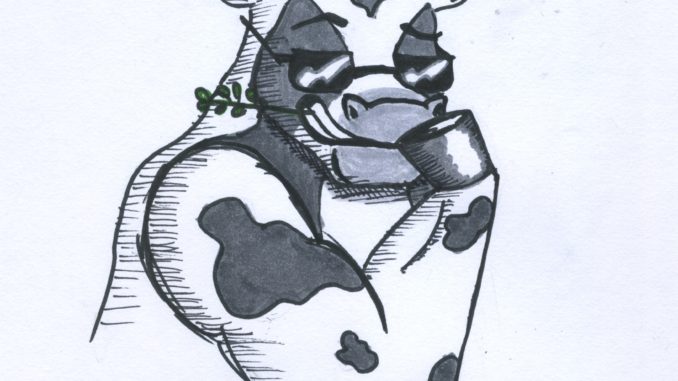
By Simran Handa and Paige Peck
Science has diffused into almost every aspect of our lives, most obviously in public policy. We see STEM in the news every day in stories about climate change, genetically-modified organisms (GMOs), sustainability and the water crisis, all of which exist alongside an ever-growing list of STEM topics essential for understanding a world increasingly reliant on science. Along with increased visibility, STEM subjects occupy more of the political sphere, meaning citizens have more opportunities to influence the way the U.S. government approach critical science issues.
In an increasingly technological world, all students should be able to understand science that pertains to critical news topics. STEM education should no longer be just a tool to recruit the workforce of the future, but should now be considered a tool for all citizens to productively understand and participate in a democratic society. But how well did the high school science classes that Lewis & Clark students have taken prepare them to participate in these critical discussions?
In our “Science Education in the 21st Century” class, we surveyed LC students about their scientific preparation in high school and measured how this would relate to their ability to understand science in the news. We specifically chose to focus on their understanding and attitudes about GMOs, a critical science news topic. GMOs are organisms in which scientists artificially alter the genetic code of crops to make them more nutritious, flavorful or high-yielding. In this process, scientists can add beneficial genes from other organisms into plants in order to confer the desired traits, most commonly pesticide resistance. These genetic changes are stable and transmitted to successive generations. GMOs are widely considered safe for human consumption, though long-term studies are still necessary.
Understanding GMOs necessitates a thorough understanding of the underlying molecular biology, agricultural science and bioengineering. However, we found that only 23 percent of respondents felt that their high school science education prepared them to understand enough about GMOs. Taking more science classes in high school did not significantly improve students’ understanding of GMOs, even if these were rigorous upper-level classes. Across the board, we found that all LC students have a pretty low scientific understanding of GMOs regardless of high school scientific preparation.
We next wondered if the understanding of GMOs would translate into different attitudes about their use. In general, STEM majors are more likely to have positive opinions about GMOs, and they feel much more strongly about their views than non-STEM majors. One might think that STEM majors would also have an increased understanding of GMOs, but we found that all majors scored similarly. Nevertheless, STEM majors have higher self-reported understanding, indicating increased confidence in their ability to understand GMOs.
Those more confident in their understanding and opinions about GMOs might be more likely to get involved in voting, policy decisions and public discussions. However, the GMO debate is an interdisciplinary issue involving biotechnology, economics and sociology. More students, regardless of whether they are STEM majors, should have a better understanding of GMOs so they feel more prepared to participate in public decisions. High school science classes need to do a better job of preparing everyone to understand critical science in the news so that they may later engage with policy decisions and college-level discussions.
The results of our survey reflect the results of similar GMO inquiry projects at colleges across the country, including Iowa State University, University of Colorado at Boulder and University of New Hampshire. It seems that college students in general do not know enough about GMOs, though STEM majors may be more confident in their understanding and steadfast in their views. If more students learn about STEM issues and how to read and understand STEM news with a critical eye, society as a whole will be better prepared to combat injustice and face the uncertain, technology-riddled future.
Perhaps LC can begin to address this issue at the college level by developing a class on critical science in the news that is accessible for all majors. Individual students can get involved by educating themselves and their peers about topics like GMOs and starting critical conversations on campus. Interested students could also take an education course to continue to understand the many ways by which this problem is furthered and join us in searching for comprehensive solutions.
Subscribe to the Mossy Log Newsletter
Stay up to date with the goings-on at Lewis & Clark! Get the top stories or your favorite section delivered to your inbox whenever we release a new issue.

Leave a Reply